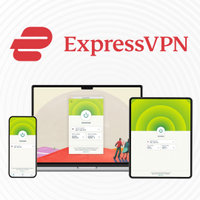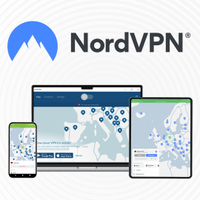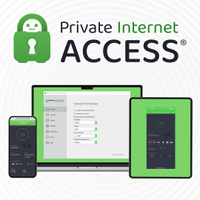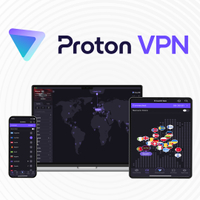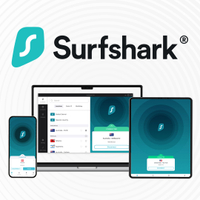Secure VPN providers 2025: safe options for the best security and encryption
Shore up your digital security and stay safe online with these battle-tested VPNs
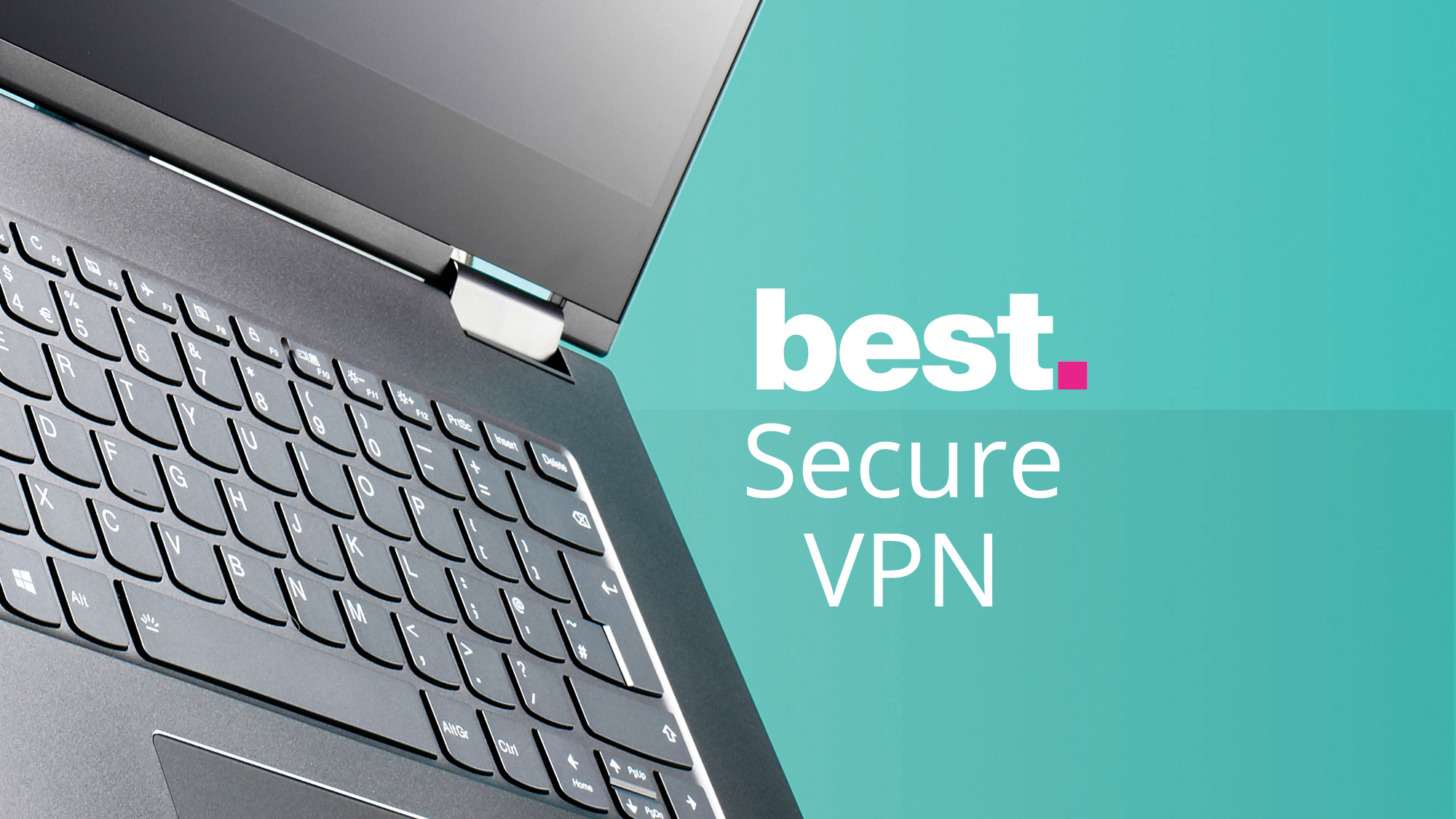
Trying to find the best secure VPN is no easy task. There are many VPNs out there that claim to protect your data against spying, but only a few are really worth checking out.
After extensive hands-on testing, we’ve found ExpressVPN to be the most secure VPN overall, thanks to best-in-class security features like quantum-resistant encryption and an extensive set of third-party audits. That said, if you want something a little more affordable without losing core privacy features, Surfshark isn’t far behind in terms of security.
We’re constantly evaluating the VPNs we’ve reviewed to make sure our rankings reflect reality. The TechRadar VPN team has over 11 years of experience reviewing these tools, and we test each provider regularly to ensure they meet evolving security standards. In this guide, we’ve narrowed down the best VPN services that offer the best in privacy, encryption, and anonymity.
5 best secure VPNs: quick overview
1. ExpressVPN – from $4.99 per month
The best secure VPN
ExpressVPN keeps your data secure with quantum-resistant encryption, a rock-solid no-logs policy audited by several third parties, and RAM-only servers that wipe all data on every reboot. All this is to say that when you’re using ExpressVPN, you can be sure your internet traffic is in good hands. It’s also based in the British Virgin Islands, which is outside any major intelligence-sharing alliances. Currently, if you sign up for two years, you get four months free for the low price of $4.99. That also includes theft insurance and a monthly credit scan for US customers, giving you additional peace of mind against identity theft. All of ExpressVPN’s long-term plans come with a 30-day money-back guarantee, so you can try before you buy.
2. NordVPN – from $3.09 per month
The best VPN overall
NordVPN includes all the security basics you’d expect, like AES-256 encryption, a kill switch, and DNS leak protection. Where NordVPN shines is with features like Threat Protection, which blocks trackers and malware at the DNS level. Threat Protection Pro goes one step further by automatically scanning the files you download for malware, acting as an anti-virus system built into your VPN client. You can get 2 years at a discounted rate of $3.09 per month, which also comes with a 30-day money-back guarantee, just in case you’d like to try another VPN provider.
3. Private Internet Access (PIA) - from $2.03 per month
The best Linux VPN
PIA’s customizable encryption settings let you strike the right balance between security and speed. For an extra boost to your privacy, you can enable PIA’s multi-hop settings, which also include built-in obfuscation. This way, it’s far more difficult to tell if you're using a VPN, which is essential if you’re trying to evade your workplace’s restrictive network rules. It's also one of the few providers that’s proven its no-logs claim in court multiple times. Right now, you can get a 3-year plan for a huge discount, costing $1.98 per month with 2 months free. If that’s not enough, you can check PIA out risk-free with a 30-day money-back guarantee.
4. Proton VPN – from $3.59 per month
The best VPN for privacy
Created by the team behind ProtonMail, Proton VPN is privacy-first at its core. All of Proton VPN’s servers use full-disk encryption to ensure nobody can access your data while it’s traveling through Proton VPN’s network. On top of this, you can enable Secure Core routing to send your traffic through a hardened VPN server first, protecting your traffic against attacks against the endpoint server you’re connected to. Proton is headquartered in Switzerland, meaning you’re protected by strong privacy laws. Its bi-annual plans are discounted down to $4.59 per month and covered by a 30-day money-back guarantee.
5. Surfshark – from $2.19 per month
The best cheap VPN
Surfshark brings some serious value with powerful security tools, such as an anti-virus solution and dark-web monitoring. The core service comes with CleanWeb, keeps you from accidentally accessing malware links, and scrubs ads from your browsing experience, drastically cutting down on the ways hackers can access your systems. Thanks to a total overhaul of its networking backend, Surfshark also offers multi-hop functionality from any two of its VPN servers in case you don’t trust the endpoint server you’re connecting to. It's budget-friendly at $1.99 a month when you buy for two years, but you’re still getting core privacy features like AES-256 encryption and a strict no-logs policy. Plus, there’s a 30-day money-back guarantee just in case you’re not happy with the service.
Recent updates
ExpressVPN has claimed the top spot in our secure VPN rankings. The service is a battle-tested option that invests heavily in the security of its users, with a proprietary protocol, frequent audits, and groundbreaking research into DNS leaks. Check out our latest VPN test results for more insights.
The 5 best secure VPNs in 2025
Why you can trust TechRadar
The best VPN for beginners
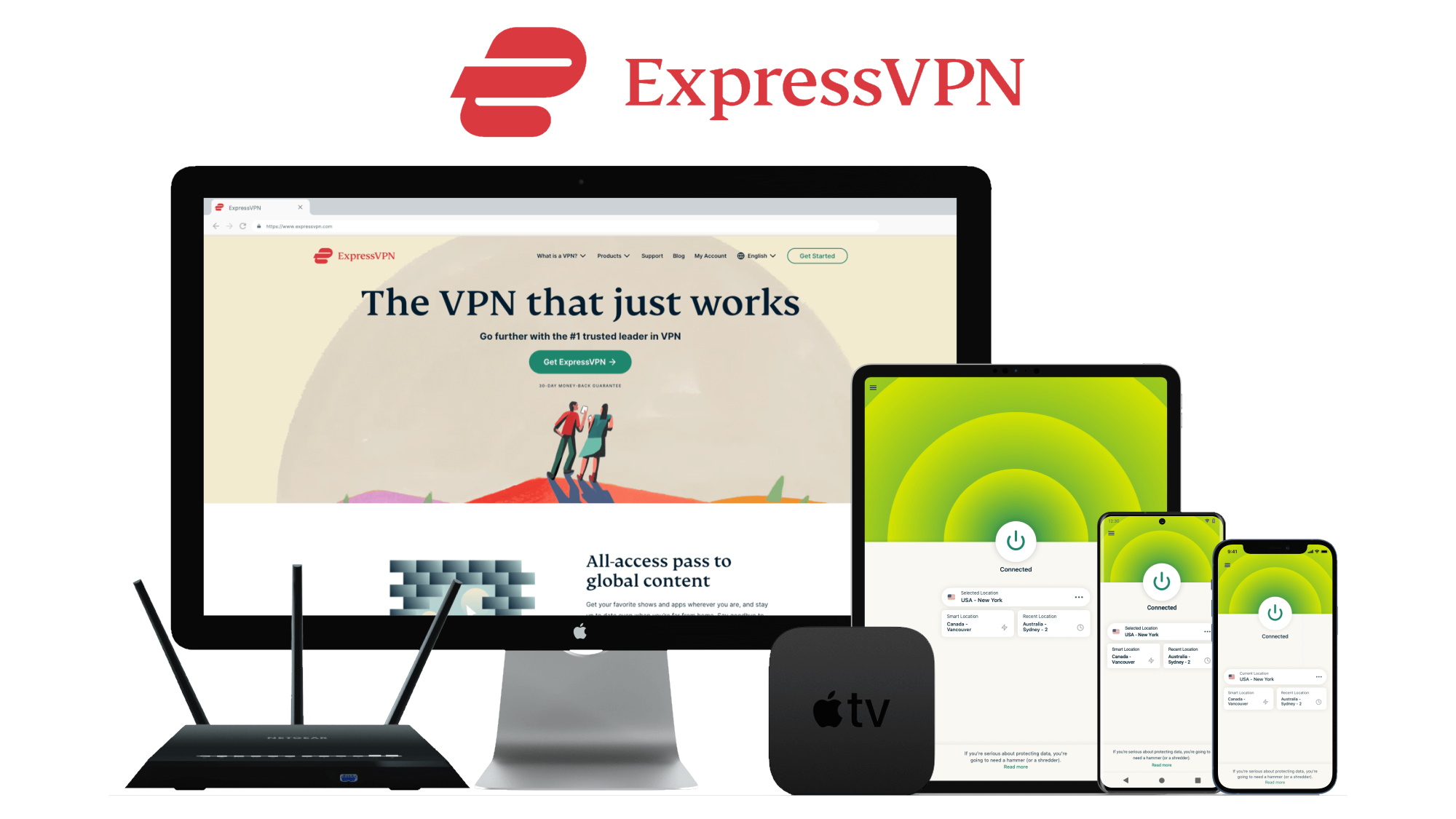
1. ExpressVPN
An audited no-logs policy and sleek apps
Server locations: 160 | Maximum devices supported: 8 | Refund period: 30 days | 24/7 customer support: Yes
ExpressVPN isn’t quite as feature-rich as some of the other choices on our list of the best secure VPNs, but it’s at the top for one single reason: it’s been built from the ground up for security. Once you get under the hood, it’s clear every design decision has been made with your privacy in mind.
Read more about ExpressVPN ▼
Privacy and security
ExpressVPN uses a proprietary VPN protocol, Lightway, which has been designed with obfuscation-by-default so it’s far more difficult to identify that you’re using a VPN. It has also built quantum-resistant encryption into the app, so anyone capturing your encrypted VPN traffic won’t be able to decrypt it in the future.
ExpressVPN runs on proprietary TrustedServer tech, ensuring all servers run in RAM and never write data to disk. Even if ExpressVPN’s servers are subject to a request by law enforcement, there’s no data to examine.
It uses AES-256 encryption with 4096-bit RSA keys and perfect forward secrecy to keep your data safe against snooping third parties. Its no-logs policy has been verified by multiple third-party audits, including PwC and KPMG, which significantly increases our confidence in its data-handling practices.
Ease of use
ExpressVPN is today's best VPN for beginners. Unlike most VPNs, all you need to sign in to ExpressVPN is an activation code. If you prefer, you can sign in through an email link instead.
Once you’re logged in, there are a few first-time prompts to click through relating to anonymous data analytics, and then you’re presented with the main dashboard.
Using the actual app couldn’t be simpler. The connect button is clearly signposted, and the location bar directly underneath presents a “Smart location” option, which is really just the fastest local server.
If you want to change the server you’re connecting to, you can click through to a separate menu which breaks down both the recent locations you’ve used and recommended servers based on connection speed. A separate tab gives you the full list, but if you’re in a hurry, you can just use the search bar at the top to filter down to the country or city you want.
We’ve also found that ExpressVPN is pretty fast in testing. Although Surfshark, NordVPN, and ProtonVPN all posted better speeds during our latest round of speed tests, ExpressVPN still achieved a respectable 898 Mbps over our 1 Gb line.
We connected to servers in the US, UK, and Japan without any drops or noticeable slowdown. The speeds we’ve recorded are more than fast enough for 4K streaming and lag-free gaming. We also have to put special attention on ExpressVPN’s mobile apps, which connect near-instantly thanks to their proprietary Lightway VPN protocol.
The best VPN overall
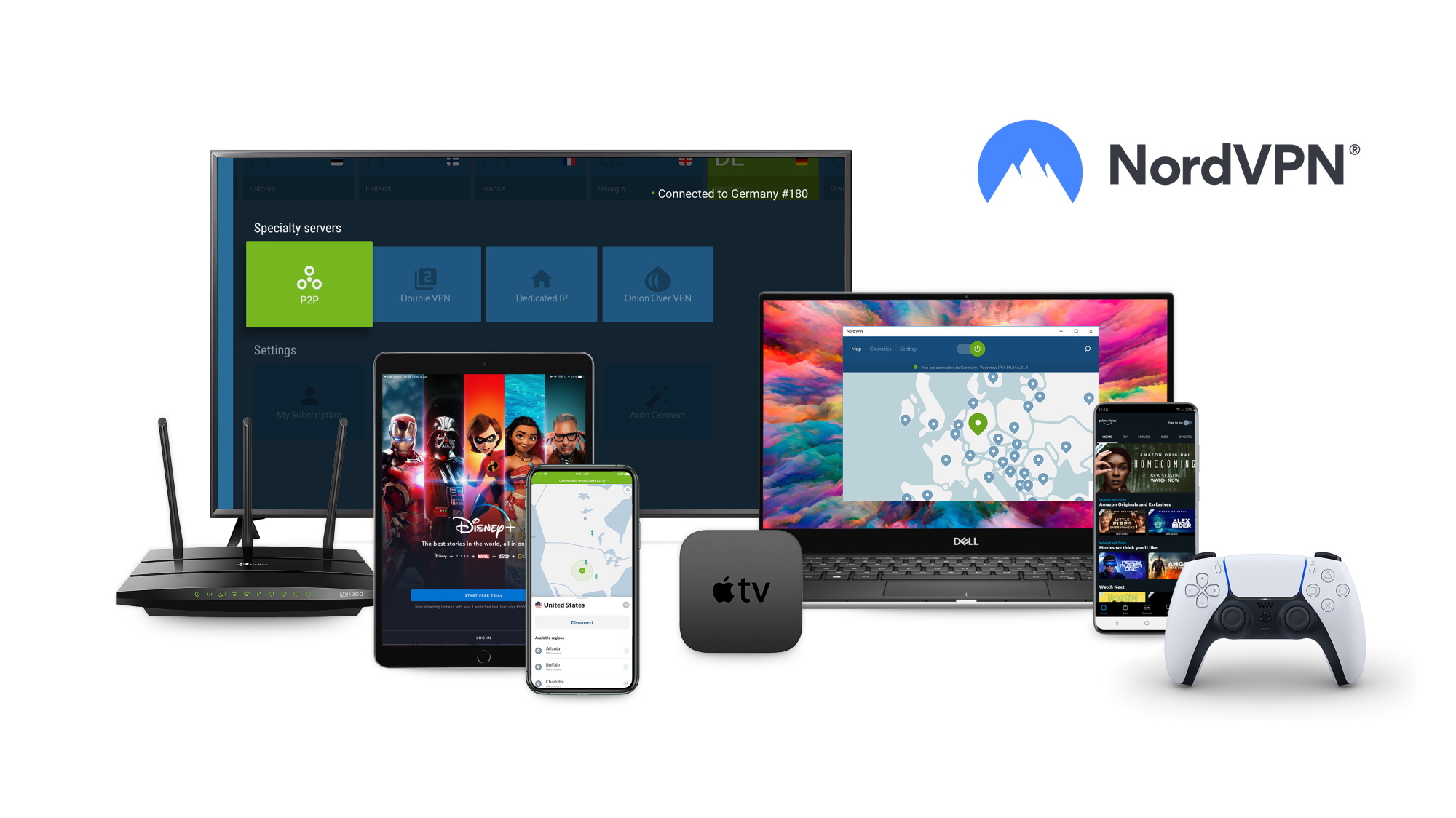
2. NordVPN
The best all-in-one security suite
Server locations: 154 | Maximum devices supported: 10 | Refund period: 30 days | 24/7 customer support: Yes
It’s neck and neck between NordVPN and ExpressVPN when it comes to security. While ExpressVPN focuses on getting core VPN features right, NordVPN offers a whole suite of security tools that keep your device from being compromised. However, some of these features aren’t available on the cheaper plans, so you’ll need to make sure you pick the right option for your needs.
Read more about NordVPN ▼
Privacy and security
NordVPN offers OpenVPN, as well as a proprietary VPN protocol called NordLynx. Based on WireGuard, NordLynx uses extra NAT routing to ensure your VPN traffic can’t be linked to your NordVPN identity, uses AES-256 encryption, supports WireGuard via its custom NordLynx protocol, and includes a kill switch and DNS leak protection. It has a strict no-logs policy independently verified by Deloitte.
NordVPN has undergone five separate no-logs audits over the years, most recently by Deloitte, which have independently verified that NordVPN’s privacy practices are exactly what you’d expect.
NordVPN’s Threat Protection comes in two flavours: Standard and Pro. They’re basically two different tools.
Standard uses DNS filtering to protect you against known malware domains and advertising networks, whereas Pro is an entire anti-malware engine that runs on your device. It dynamically scans files you download to make sure they’re not malware.
Our testing of Threat Protection Pro indicates that it’s on par with dedicated threat-detection tools like Bitdefender, with a detection rate of 88% on the 1000 malware URLs we tested.
Ease of use
The NordVPN installation process is pretty standard: download the app from the site, click through the install wizard, and use your username and password to log in.
Connecting is also a breeze; all you have to do is hit the “Quick connect” button on the top left, and you can leave NordVPN to do its thing. If you’d prefer to connect to a specific location, most of the NordVPN dashboard is taken up by a minimally styled world map that gives you an instant picture of which countries NordVPN has servers in.
Our test speeds were excellent, averaging 950+ Mbps over NordLynx. It's why NordVPN is the best VPN for streaming, as well as a great option for gaming and P2P file sharing.
The best VPN for Linux
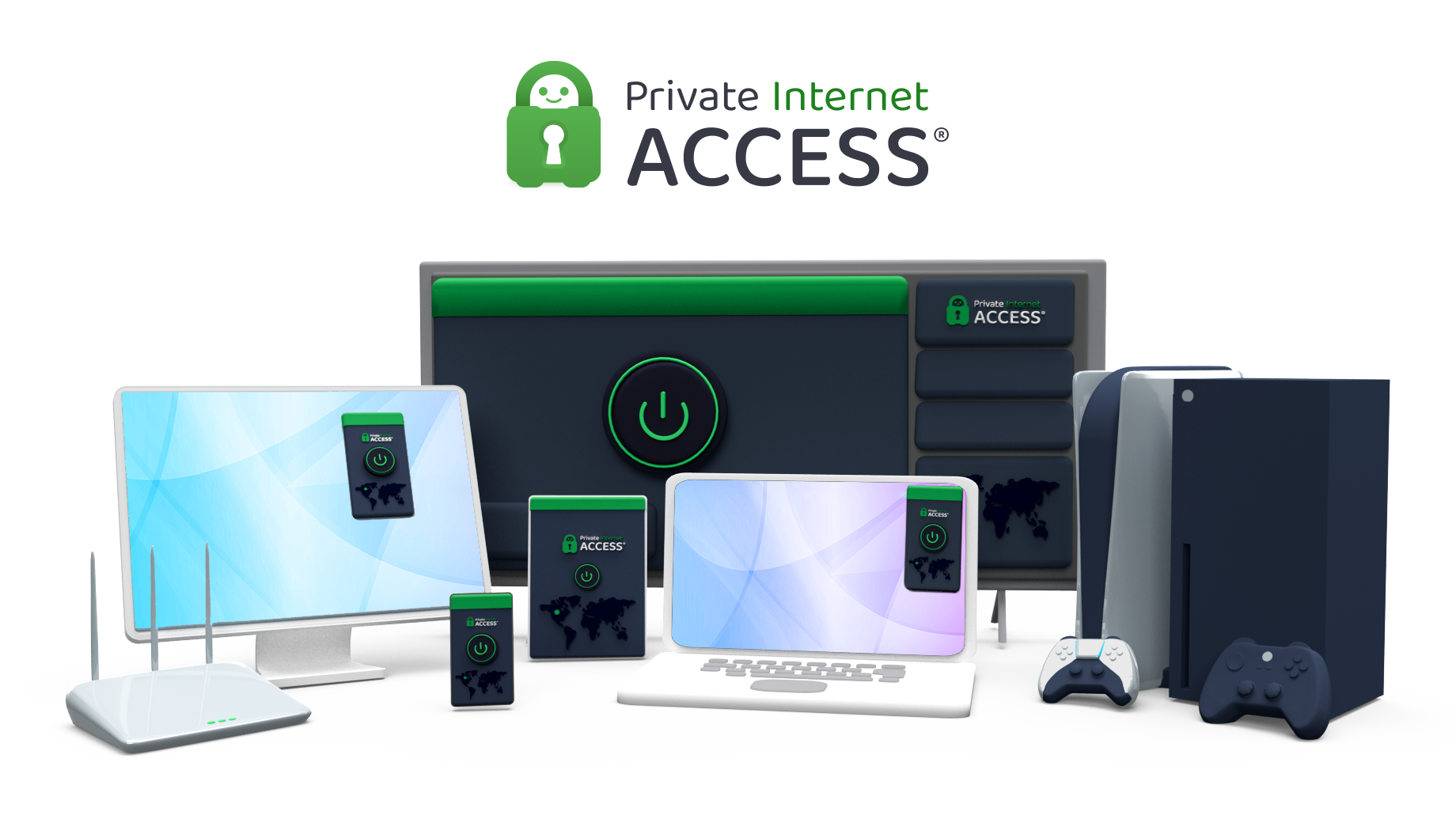
3. Private Internet Access (PIA)
My top pick for Linux with a full stack of security tools
Server locations: 151 | Maximum devices supported: Unlimited | Refund period: 30 days | 24/7 customer support: Yes
PIA is a veteran in the VPN space, with over a decade of expertise in providing privacy solutions. It’s reflected in its app, as PIA provides plenty of customisation options that allow you to choose between speed and security as necessary.
However, the real reason that PIA is on our list is because its no-logs policy has been battle-tested. It has been summoned to court twice to provide internet browsing data from its customers. Both times, PIA has demonstrated that it's unable to comply. Simply put: it can’t, because it doesn’t hold customer data.
Read more about PIA ▼
Privacy and security
Despite its formidable record, PIA is slightly lighter on extra security features, which is why we’ve ranked ExpressVPN, NordVPN, and Proton VPN higher. That said, PIA is still a fantastic choice if you want a secure VPN at a discount price.
PIA supports both OpenVPN and WireGuard, with options to customize encryption and handshake methods. We’ve tested the kill-switch and found that it’s highly reliable, and its encrypted DNS servers don’t leak either.
This means your ISP won’t be able to work out which sites you’re visiting, and you won’t have to worry about IP leaks. PIA uses a DNS-based malware protection service called MACE, which automatically blocks suspicious URLs.
The main issue we have with PIA is that it’s based in the US. Usually, given the US’s history of attempting to compromise VPNs, we’d hesitate to recommend a VPN based in US jurisdiction. PIA’s track record in court, plus a set of comprehensive third-party audits, is enough to say otherwise.
Ease of use
PIA can be intimidating if you’ve never used a VPN before. Of course, you can just hit connect and dismiss the rest of PIA’s options, just like any other provider on our list.
However, opening the drop-down box at the bottom of the client shows off a ton of tweakable settings, as well as usage statistics. The interface isn’t the prettiest, but it’s functional. There’s no wasted space in the UI.
PIA’s speeds aren’t nearly as impressive as the rest of the VPNs on our list. At 436 Mbps, that’s nearly half the top speeds of our next slowest VPN, ExpressVPN. While this might end up capping your speeds if you’re trying to quickly share or download files, it’s still more than enough to comfortably stream content in 4K.
The best free VPN
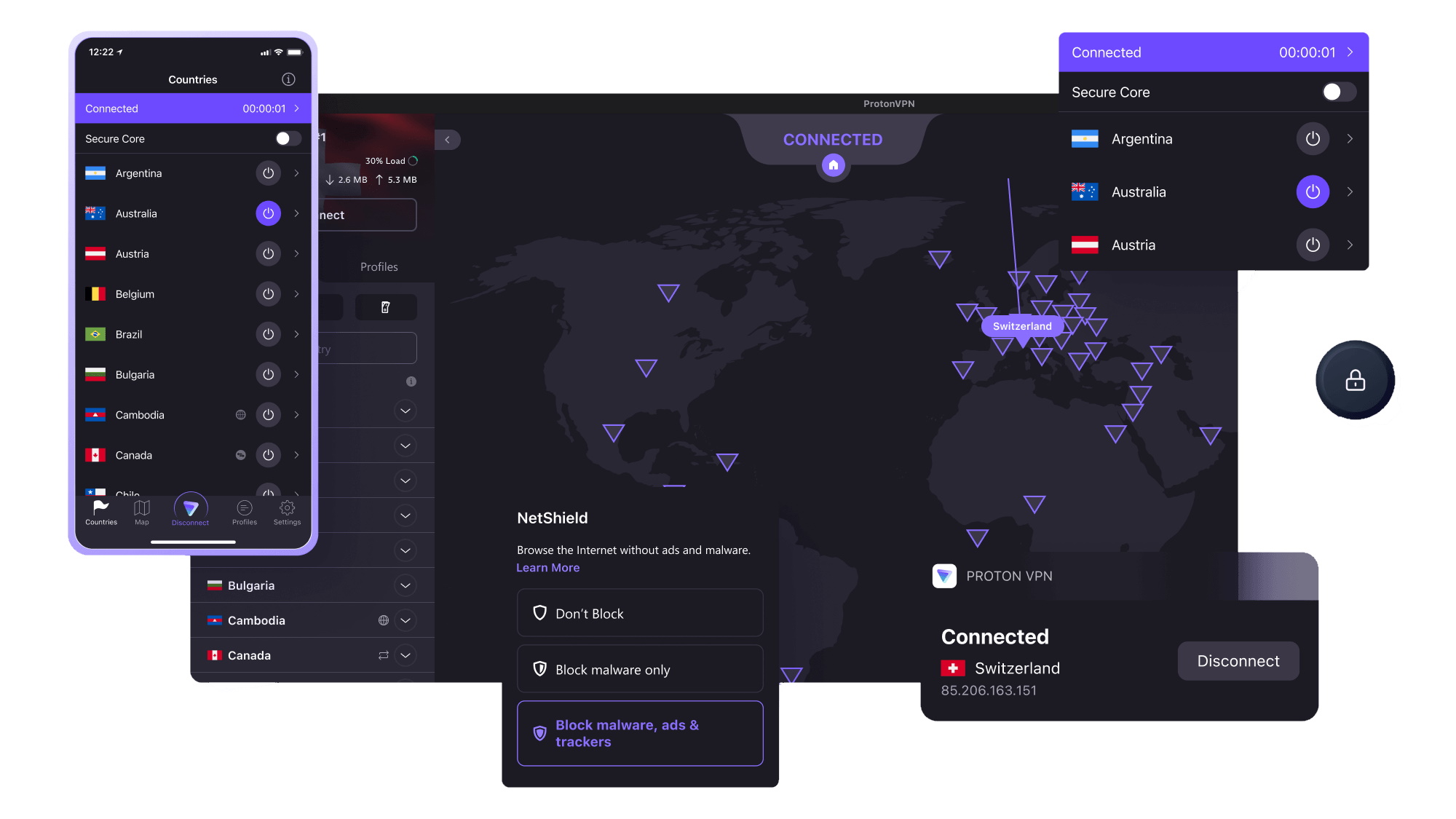
4. Proton VPN
A privacy-focused provider that you can try for free
Server locations: 144 | Maximum devices supported: 10 | Refund period: 30 days – free version available | 24/7 customer support: No
Proton has an entire suite of privacy-preserving tools on offer, which Proton VPN slots into nicely. Developed by the same team behind Proton Mail, Proton VPN has a zero-compromise approach to user privacy. It's also based in Switzerland, meaning that Proton benefits from some rock-solid privacy protection laws that prevent law enforcement from requesting IP data.
ExpressVPN and NordVPN both have slightly more extensive security features on offer, but that’s not to say that Proton VPN lags behind. It's constantly improving both the VPN client apps and security features on offer.
Read more about Proton VPN ▼
Privacy and security
Proton VPN offers OpenVPN and WireGuard protocols. Where ProtonVPN gets interesting is with Secure Core.
This feature allows you to chain your connection through a VPN server hosted in a hardened, secure location, based in a privacy-friendly jurisdiction, before sending your data on to the VPN server you want as your endpoint.
If you’re worried about your privacy in the region you’re connecting to, Secure Core gives you an additional backstop that stops hackers and governments from tracing your location.
Ease of use
At first glance, Proton VPN’s interface is a little more overwhelming than the other providers we’ve mentioned so far. Thankfully, there’s an interactive tutorial which walks you through the major features available through the Proton VPN dashboard.
ProtonVPN has recently revamped its VPN client design across Windows, iOS, and Android to make the app more intuitive. We’re especially impressed with the profiles feature, which allows you to register all of your current connectivity settings in a separate window.
You can then switch between these at will, making it far easier to change contexts without having to change all of your settings individually. We quite like that there’s session monitoring baked into the app so you can see how much data you’re using, too.
Our speed tests recorded connections through ProtonVPN of 950+ Mbps, tying it for fastest VPN on our list with NordVPN and Surfshark VPN. Needless to say, these speeds were more than adequate for streaming, gaming, and file downloads during our stress tests.
The best cheap VPN
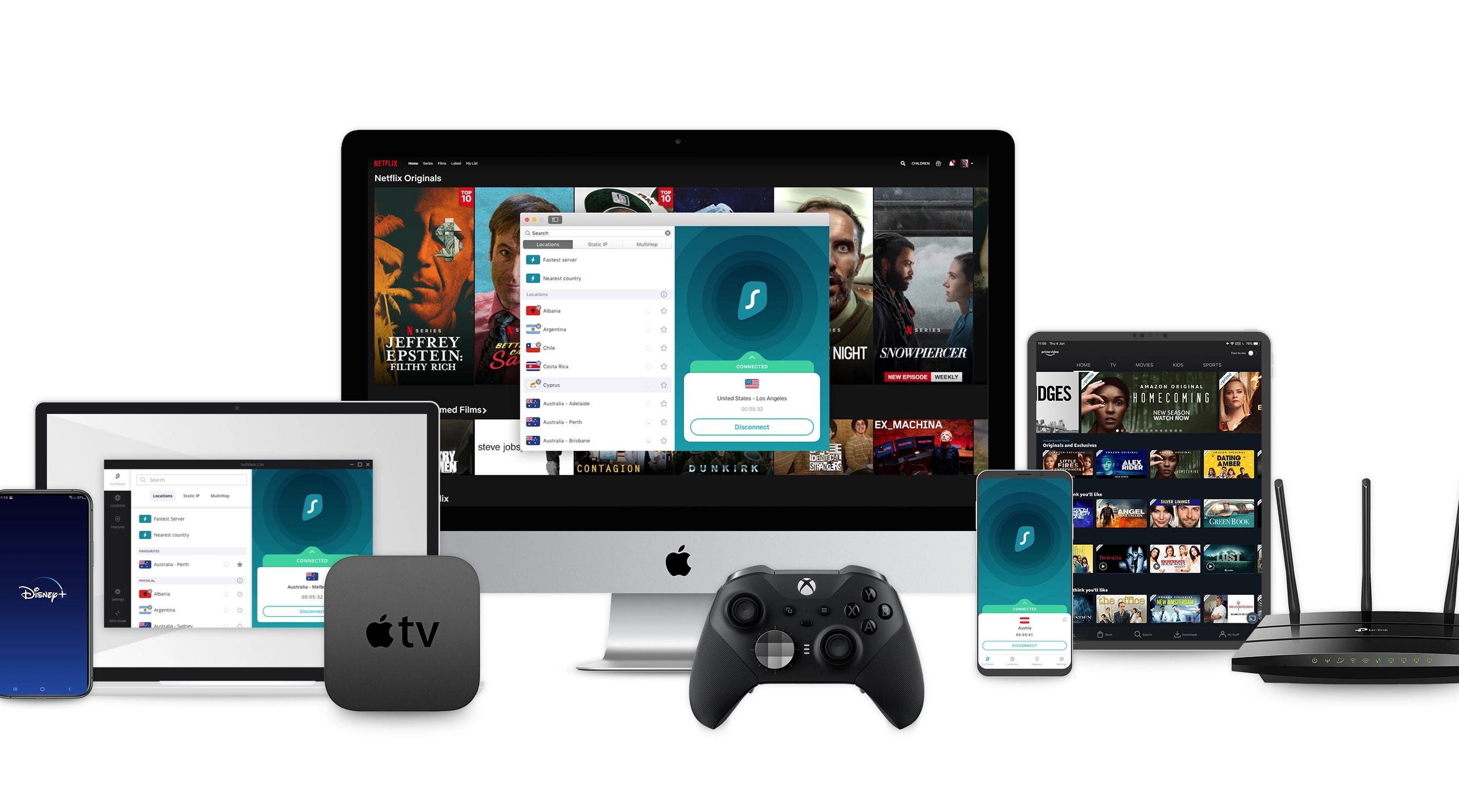
5. Surfshark
Great value for a secure VPN that scores well in every area
Server locations: 141 | Maximum device supported : Unlimited | Refund period: 30 days | 24/7 customer support: Yes
Surfshark is the best cheap VPN on the block, but that doesn’t mean it underperforms when it comes to security. Surfshark’s security features are underpinned by a software-defined network called Nexus, which allows Surfshark to offer features like full multi-hop coverage that other VPN providers can’t match.
Unfortunately, the most impressive security features are locked behind an additional subscription to Surfshark One. On the flip side, Surfshark is one of the only VPNs out there that offers unlimited simultaneous connections, so if you’ve got a significant number of devices you need to protect, then Surfshark’s a great choice.
Read more about Surfshark ▼
Privacy and security
Surfshark uses AES-256 encryption and supports WireGuard, IKEv2, and OpenVPN. As far as core VPN features go, you’ve got access to CleanWeb, which uses DNS-based blocking to keep your computer from connecting to ad networks, malware platforms, and phishing sites.
Our testing suggests that CleanWeb doesn’t perform quite as well as NordVPN’s Threat Protection system at blocking new phishing and malware sites
Surfshark’s rotating IP is a bit more impressive. It uses the Nexus network to seamlessly change your IP at five-minute intervals, making it significantly more difficult to trace your activity between different sites.
Surfshark offers plenty of extra security features through Surfshark One, an additional subscription package that gives you access to an anti-virus system and dark web monitoring. If your identity details, like your email address or credit card number, are leaked onto the dark web, Surfshark will immediately alert you in-app with a breakdown of which details were leaked and immediate actions to take to protect yourself.
Ease of use
Surfshark’s apps pack an absolute ton of functionality into a fairly simple package. The connection tab and server locations are all presented in the same window, which takes a little getting used to if you’re more familiar with the simplicity of ExpressVPN.
Each server type has its own dedicated tab, so you can quickly find Static and Dedicated servers if you’ve purchased them. The multi-hop tab is particularly useful, as it allows you to build multi-hop routes from any of the VPN servers available on Surfshark and save them for easy access in the future. Everything’s very clearly labelled, so it’s easy to pick out the multi-hop connections you’ve previously built.
Surfshark’s also extremely fast. We hit average speeds of 950+ Mbps while testing it out, so it’s more than adequate for any use case you might have.
How does VPN encryption work?
Encryption can only go so far. If the authorities demand logs or other details on users from a VPN firm, encryption won’t stop the provider from handing said details over – which is why you should always be on the lookout for a firm that has a super-solid ‘no logs’ policy. That’s because while encryption might keep your data private and unreadable to your ISP, it’s still visible to the VPN itself.
That’s a common misconception about VPN security and encryption in regard to online privacy. Further misunderstandings can stem from the mishmash of jargon that surrounds talk of encryption, which is all likely to be meaningless to the casual VPN user. Terms like 128-bit, 256-bit, and AES are likely to confuse, so a bit of explanation is in order.
Encryption relies on advanced mathematical formulae to work its magic. Some types of encryption are stronger than others, and that’s where the terms 128-bit and 256-bit enter the picture – the latter is stronger than the former.
AES stands for Advanced Encryption Standard and is the computer cipher or the actual algorithm used to perform the encryption.
We cover all of the key concepts, without the techy jargon, in our guide to encryption.
Blowfish and AES are by far the most common ciphers found in daily VPN usage, and you’ll most commonly see VPN providers offering AES 256-bit encryption. The latter is something of a worldwide standard for solid security, with 256-bit encryption producing a staggering 1.1579 x 10 to the power of 77 possible keys.
Given that, even if you were using the combined power of all the world’s most powerful supercomputers, it’s not possible to pull off a brute-force attack to crack a symmetric 256-bit key (not before the death of the universe rolled around, anyway.)
Also, worth mentioning is Perfect Forward Secrecy (PFS), a system of private encryption keys generated for each new session – this basically ensures that even if the current particular key in use is somehow compromised, the encryption of past sessions can’t be cracked (because they all use a different key).
The best secure VPN FAQs
What is the most secure VPN?
It’s impossible to say definitively which VPN is the most secure, but out of the ones we’ve tested, we’re most confident in ExpressVPN. ExpressVPN’s proprietary Lightway protocol is built to combine lightning-fast connectivity with future-proof security, so even if quantum attacks become viable on current encryption standards, ExpressVPN is still ahead of the curve.
Combined with RAM-only servers and a proven no-logs policy, ExpressVPN is a VPN provider that’s gone above and beyond to protect your data. However, all of the VPN providers on our list offer their own unique security benefits.
Are VPNs good for security?
Yes, VPNs are excellent tools for boosting your digital security when used with other privacy solutions, but be warned: a VPN won’t solve all of your security issues.
What they will do is encrypt your internet traffic, making it nearly impossible for your ISP to identify what you’re doing with your connection. They also hide your IP address when you’re using the internet, so that the services you interact with see your VPN IP address instead. Where possible, you should choose a VPN with audited no-logs policies, leak protection, and up-to-date encryption protocols.
Which VPN protocol should I use?
It depends on your use case, but generally, WireGuard, OpenVPN, and IKEv2 are all appropriate choices for secure VPN protocols. WireGuard is currently the best balance of speed and security, but it’s not as widely supported as OpenVPN. OpenVPN has been thoroughly tested and is in use at the enterprise level all over the world, but the large codebase and heavyweight implementation make it significantly slower than WireGuard or IKEv2. IKEv2’s best for use on mobile devices. Avoid outdated protocols like PPTP or L2TP whenever possible.
Disclaimer
We test and review VPN services in the context of legal recreational uses. For example: 1. Accessing a service from another country (subject to the terms and conditions of that service). 2. Protecting your online security and strengthening your online privacy when abroad. We do not support or condone the illegal or malicious use of VPN services. Consuming pirated content that is paid-for is neither endorsed nor approved by Future Publishing.
Get daily insight, inspiration and deals in your inbox
Sign up for breaking news, reviews, opinion, top tech deals, and more.

Sam Dawson is a cybersecurity expert who has over four years of experience reviewing security-related software products. He focuses his writing on VPNs and security, previously writing for ProPrivacy before freelancing for Future PLC's brands, including TechRadar. Between running a penetration testing company and finishing a PhD focusing on speculative execution attacks at the University of Kent, he still somehow finds the time to keep an eye on how technology is impacting current affairs.
